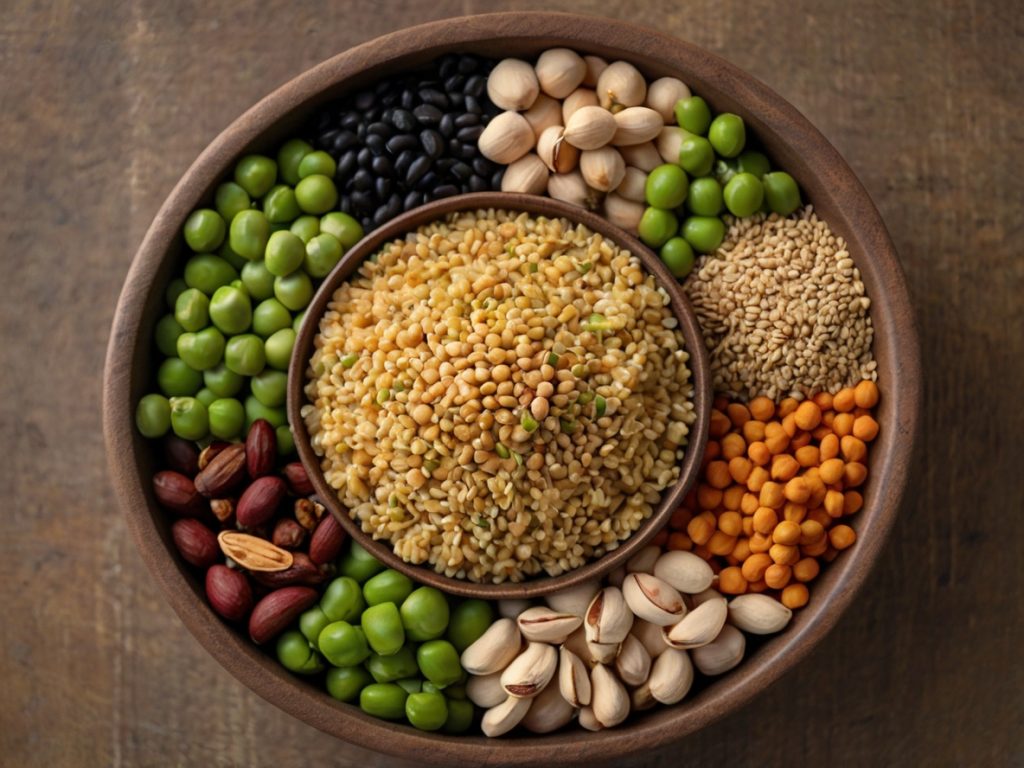The demand for a healthier lifestyle has sparked a growing interest in plant-based foods, not just for their environmental benefits but also for their profound impact on our health. Among these plant-based offerings, plant-based protein is gaining significant attention, providing a fantastic alternative to traditional animal proteins. Whether you’re a long-time vegetarian, a vegan, or just someone looking to incorporate more greens into your diet, unlocking the benefits of plant-based protein can elevate your health and well-being in surprising ways.
The Nutritional Facts of Plant-Based Protein
Many people might assume that plant-based proteins can’t match the muscle-building power of animal proteins. However, this couldn’t be further from the truth! Numerous plant sources offer substantial protein content, along with an array of additional nutrients.
Top Sources of Plant-Based Protein:
-
- Legumes: Lentils, chickpeas, and beans pack a punch, with lentils containing about 18 grams of protein per cooked cup.
-
- Seeds and Nuts: Almonds, chia seeds, and hemp seeds not only provide protein (e.g., hemp seeds have about 10 grams per 3 tablespoons) but also healthy fats.
-
- Whole Grains: Quinoa is a complete protein and contains all nine essential amino acids. Other grains, like brown rice and oats, are excellent additions.
-
- Soy Products: Tofu and tempeh are incredibly versatile sources of protein, with tofu having about 20 grams of protein per cup.
The Health Benefits of Plant-Based Protein
Beyond just protein content, plant-based proteins offer a myriad of health benefits that make them a smarter choice for many. Here are some key advantages:
Heart Health
-
- Lower cholesterol levels: Plant-based proteins are typically lower in saturated fats compared to animal proteins, aiding heart health.
-
- Reduced risk of heart disease: Diets high in plant-based proteins have been associated with reduced risks of hypertension and heart disease.
Weight Management
-
- Satiation: High-fiber plant proteins keep you feeling full longer, which can help with weight loss efforts.
-
- Nutrient-dense: Plant proteins are often lower in calories without sacrificing nutrition, making them a great choice for those looking to maintain a healthy weight.
Gut Health
-
- Fiber-Rich: Most plant-based proteins are high in fiber, which is essential for maintaining a healthy digestive system.
-
- Probiotic Benefits: Foods like tempeh and some fermented soy products support gut health, further enhancing digestion.
Easy Ways to Incorporate Plant-Based Proteins into Your Diet
Adding more plant-based proteins into your meals doesn’t have to be a chore. Here are a few simple yet effective tips:
-
- Start Your Day with a Protein-Packed Smoothie: Blend spinach, almond milk, a banana, and protein-rich powders like pea protein or hemp seeds for breakfast.
-
- Experiment with Legume-based Dishes: Whip up a hearty lentil stew or a chickpea salad. These dishes could easily be the stars of your meal.
-
- Replace Meat with Plant Alternatives: Try a tofu stir-fry or a black bean burger for a satisfying dinner that leaves you energized.
-
- Snack Wisely: Reach for edamame, hummus with veggies, or a handful of nuts instead of sugary or processed snacks.
The Journey to Health
As we navigate the bustling world of diet and nutrition, it’s essential to remember that our food choices significantly impact not only our health but also our daily lives. Eating healthy is not just about weight loss or fitting into certain clothes; it’s about fueling our bodies, enhancing our moods, and increasing our overall quality of life.
In the words of Hippocrates, “Let food be thy medicine and medicine be thy food.” Embracing a diet rich in plant-based proteins can be a fantastic step toward a vibrant, fulfilling, and healthy lifestyle. So why not take that step today? Your body will thank you!



